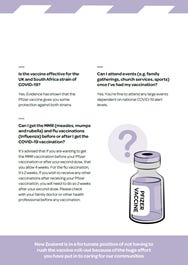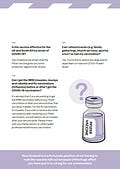When politics is all tip and no iceberg
Politics needs style as well as substance—but what do we do when politics collapses into comms?
New Zealand politics contains its share of immortal lines. David Lange, debating the morality of nuclear weapons in 1985, told his opponent that he could “smell the uranium” on his breath. Michael Joseph Savage described his government’s social welfare policies as “applied Christianity”. Don Brash allegedly told US officials that New Zealand’s nuclear-free policy would be “gone by lunchtime” if he were elected. They illustrate a timeless truth—that politics has always been about persuasion, about style as well as policy substance. But now, and especially under this government, it seems that politics is more about the message and less about the results. We might even say that politics, and by extension the art and act of government, doesn’t just depend on good comms. These days, politics is comms.
We need politicians to be good at communicating—to persuade, to illuminate, to inspire, to create a constituency for necessary change. This may be especially true in times of crisis, and the Prime Minister has served us well against the immediate threats of two terrorist attacks and the COVID-19 pandemic. Inspiring unity and compassion rather than division is a tremendous accomplishment. There’s also a place for the soundbite, the memorable turn of phrase that captures a moment and provokes a reaction—for the gleaming tip that caps off an iceberg of gravity, of serious thought and carefully designed policy machinery. The problem is when it’s all tip and no iceberg, when there’s little to no substance under the surface.
It turns out that rhetoric alone doesn’t change reality, that earnestly enjoining people to “be kind” in the face of the pandemic doesn’t make up for a year of self-congratulation and inaction. Skilful wordsmithery like “the team of five million”, and complacent assurances that the nation was taking “our rightful place in the delivery of vaccine”, ring hollow alongside a woefully sluggish vaccine rollout, a “reactive and conservative” testing strategy, an MIQ regime that resembles a lottery, and concerns that the health system is underprepared for Delta and the end of the elimination strategy. This isn’t an isolated example. This government promised to solve the housing crisis, and instead gave us KiwiBuild. Compassionate public leadership in response to the mosque terror attacks was followed by ill-conceived hate speech proposals. They promised to be the most transparent government ever but, says one senior journalist, have turned out to be “one of the most thin-skinned and secretive I have experienced.” It’s not just that there’s a gap between lofty sermonising and actual outcomes—it’s that in many cases the outcome is the opposite of the intention. Mismanaging the response to COVID and leaving us vulnerable to an extended lockdown is not kind, as anyone watching their livelihood go down the drain or struggling with isolation and mental illness could tell you.

The current government is particularly good at manipulating the public discourse by this sort of wordplay, but it’s a wider problem. Politics has become increasingly visual and trivial in recent years, and the gap between politics and entertainment has narrowed. The arc traced by Paula Bennett, from Deputy Prime Minister to game show host, illustrates this perfectly. So does John Key’s mastery of ‘soft’ media. It’s like a form of climate change, creeping up on us over time, as increasingly warm waters melt the iceberg from underneath. Equipped with a degree in communication studies, majoring in politics and PR, the Prime Minister is perfectly qualified for this environment.
Neil Postman wouldn’t have been surprised by this climate change—in fact, he predicted it. The famous media theorist diagnosed this issue in the 1980s. He was concerned with the rise of television, but everything he had to say applies with even more force to our age of social media. In his book, Amusing Ourselves to Death, Postman described the shift to an “Age of Show Business” thanks to the medium of television reshaping public debate. “The problem,” he said, “is not that television presents us with entertaining subject matter but that all subject matter is presented as entertaining, which is another issue altogether.” He explains why this matters:
a major new medium changes the structure of discourse; it does so by encouraging certain uses of the intellect, by favouring certain definitions of intelligence and wisdom, and by demanding a certain kind of content—in a phrase, by creating new forms of truth-telling.
If our media are our “social and intellectual environment”, then truth-telling in our day is simplistic, Instagrammable, tweetable. It rewards strong emotions like outrage with clicks, likes, retweets, blue check marks, fame and opportunity. It’s increasingly personalised and curated, so that you need not encounter opinions that trouble you. It’s tribal, as we splinter into identity groups and downplay our common humanity, seeing those who disagree with us not just as wrong but as evil. It’s brought to us by journalists who increasingly write opinion alongside, or within, their reporting. In this environment, creating and controlling the narrative, mastering the soundbite, and above all carefully curating the image of authenticity, are the qualities that win our debates—and that limit them.
The politicians do it because enough people are willing to believe impossibly lofty rhetoric about transparency and to vote for platitudinous exhortations about kindness. So they’re not the only ones to blame. Postman thought that “no medium is excessively dangerous if its users understand what its dangers are. … the asking of the questions is sufficient.” We, the public, need to educate ourselves to ask these questions and to cultivate some healthy scepticism about our politicians’ more grandiose claims. But it shouldn’t be too much to expect our public leaders to take some initiative and show some leadership, to remarry substance with style. Until they do, expect things to get worse, not better. Mere rhetoric will not bend reality. No matter how many times you urge people to “be kind”, the virus isn’t listening.



Great piece. Media-savvy public figures with no philosophical backbone just happen to be living in an age where they can be revered for their one-liners. (Good for them!) Unfortunately, few members of the public are prepared to spend the time and energy scratching the surface to see what lies behind the sound bite. It seems a great number of people insist on swathing themselves in a constant stream of sweet self-congratulatory social media messages that never require them to think - all cake, no vegetables. As anyone knows, you can't live on sweet cake alone - it's fatal.